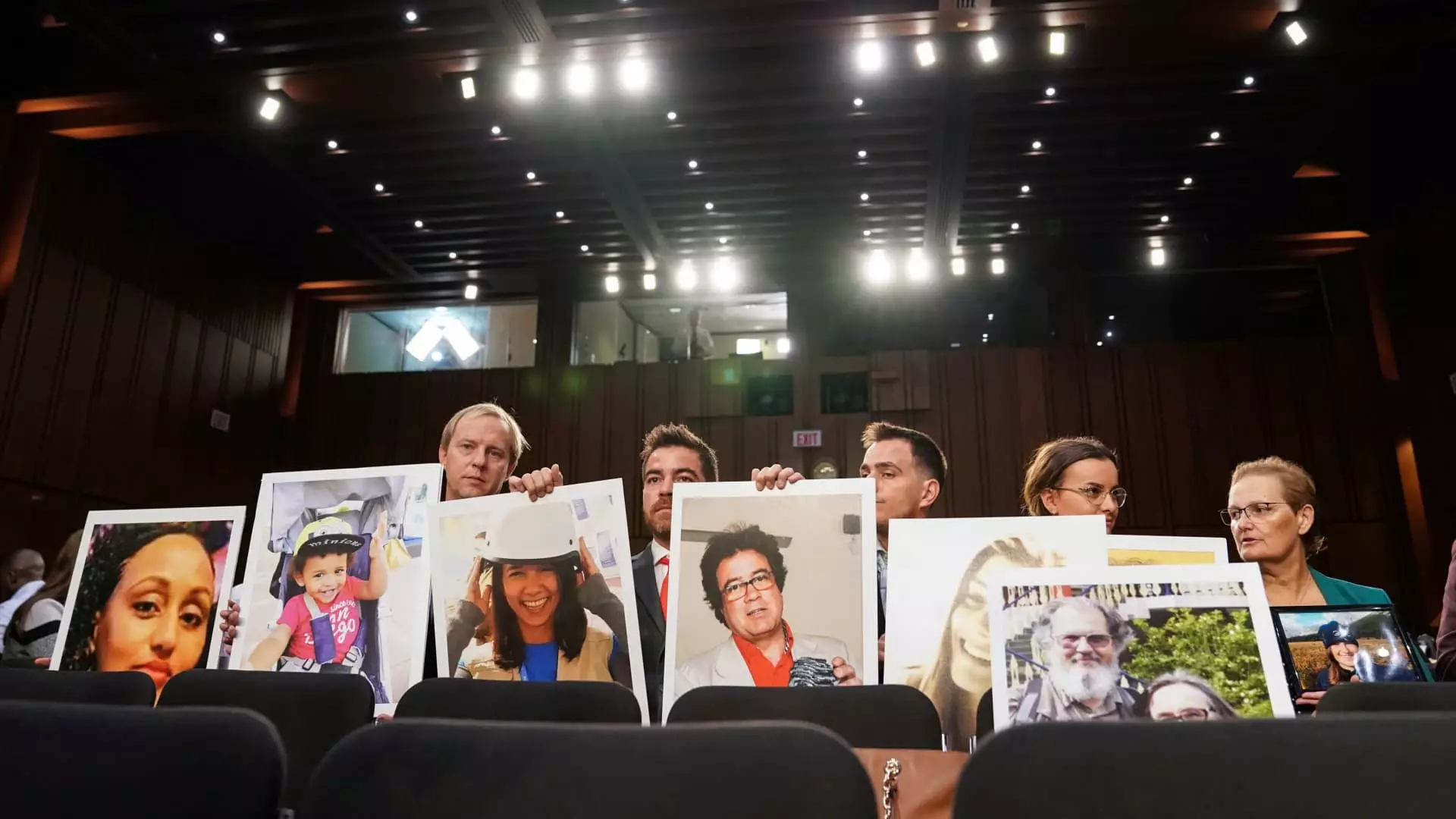In an unsettling turn of events, the U.S. Justice Department has struck a deal with Boeing, allowing the aerospace titan to dodge prosecution linked to two tragedies that claimed 346 innocent lives. This non-prosecution agreement not only serves to protect Boeing’s image but reinforces a dangerously lenient attitude towards corporate accountability. Despite the calls for justice from the grieving families of the victims, the decision shines a spotlight on a justice system that appears to prioritize corporate interests over human lives. The looming question remains: at what cost does corporate responsibility erode?
This agreement, touted by the Justice Department as a “fair and just resolution,” glosses over the criminal negligence that led to the loss of life in the two crashes of the 737 Max. With statements from government officials touting accountability and the promise of new funds for victims’ families, one can’t help but feel that the language is crafted more for public relations than for genuine justice. By preventing a trial, the DOJ has avoided the more difficult task of holding senior executives accountable for actions that seem to prioritize profit over safety and transparency.
Corporate Immunity Over Victims’ Voices
For years, families of the crash victims have been vocal about their demands for accountability. As they attempt to piece together their shattered lives, they see this deal as a betrayal, a stark demonstration of how corporate power can overshadow justice. The families’ legal representative has decried the agreement as “unprecedented and obviously wrong,” challenging the moral underpinnings of what it means to seek justice for the deadliest corporate crime in U.S. history.
A joint statement from family members reveals a palpable frustration, noting that “this kind of non-prosecution deal sets a troubling precedent.” This sentiment resonates; when corporations are allowed to sidestep the full consequences of their actions, it sends a message that profits can outweigh lives. If the government continues to enable such immunity, it raises the ethical stakes of future corporate actions and decisions.
The Price of Compromise
With Boeing agreeing to a staggering payout of over $1.1 billion, including a criminal fine and funds for compliance and safety improvements, one must evaluate what genuinely represents accountability. Does writing a check absolve an entity from the repercussions of their negligence? It’s troubling to see how financial settlements often replace the fundamental responsibility to uphold ethical standards. While the Justice Department may claim this resolves the case efficiently, there’s an inherent danger in compromising integrity for expediency.
For the families involved, financial compensation can never substitute for the loss faced. The tragic irony lies in Boeing’s attempts to restore its credibility while benefiting from agreements that seemingly allow the company to preserve its substantial military contracts and operational interests. This surface-layer reform suggests a systemic failure to hold corporations accountable for heinous acts when money can cushion the blow.
Citizens Left in the Wake
What’s more alarming is the broader context in which these events unfold. The U.S. legal system, once a bastion of justice, appears compromised by powerful corporate lobbying and influence. From the congressional hearings held earlier to discuss the Max crashes to recent settlements, the common citizen often feels the government is operating with a pro-corporate bias. The relationship between Boeing and the federal government—intertwined through military contracts and lobbying—could be interpreted as a conflict of interest.
The troubling notion is that should corporations continually escape the full weight of accountability, it sets a precedent that could embolden similar behavior across industries. If one of America’s most important manufacturing giants can negotiate their way out of culpability, where does that leave struggling families seeking justice in their own grievances?
The Illusion of Justice
In the end, Boeing’s non-prosecution deal may appear as a win for the company, a tactical maneuver to silence dissent while perpetuating a façade of responsibility. However, for the bereaved families and the American public, it serves as a stark reminder of the systemic flaws within our justice system—flaws that prioritize corporate health over human lives.
As discussions of accountability swirl around this deal, the stark reality of its implications can’t be ignored. The significance of truth and transparency stands firm in the face of corporate greed. Moving forward, Americans must question whether they are willing to accept corporate immunity or demand a system where accountability and justice prevail, for the sake of those 346 lives lost.

